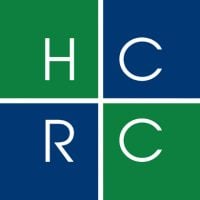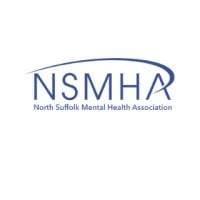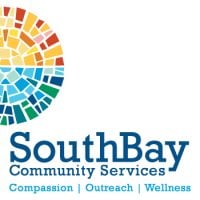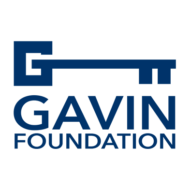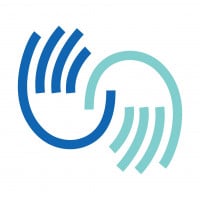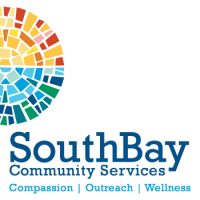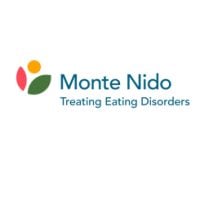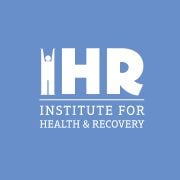Health Care Resource Centers - Chelsea
Drug Rehab Center in Chelsea, Massachusetts
Health Care Resource Centers – Chelsea is a trusted Addiction Treatment Facility in Chelsea, MA that is accredited by CARF, SAMHSA, and licensed by the State of Massachusetts, offering a wide range of services and accepting private health insurance.
About This Chelsea, MA Facility
Health Care Resource Centers (HCRC) in Chelsea, Massachusetts, has been providing outpatient medication-assisted treatment for opioid use disorder for over 25 years. As a BayMark Health Services company, HCRC is dedicated to improving the quality of life of their clients through efficient and effective treatment in an environment that promotes dignity and respect.
HCRC offers individualized treatment that addresses addiction as a bio-psychosocial disease. Their combined approach of medication and counseling has proven to be more effective during recovery.
The facility specializes in treating individuals struggling with opioid addiction, substance abuse, drug addiction, and alcoholism. Patients are motivated to participate in AA and NA groups during treatment.
- CARF, SAMHSA, and state-licensed facility
- Comprehensive treatment options tailored to individual needs
- Aftercare support and detoxification services available
- Outpatient levels of care provided
Accredited by CARF, SAMHSA, and holding a state license, HCRC demonstrates its commitment to providing quality care. The facility offers a range of services, including aftercare support, detoxification, drug rehabilitation, and outpatient levels of care, ensuring comprehensive treatment options for each individual's unique needs.
For those seeking help with opioid addiction, HCRC's medication-assisted treatment, combined with counseling and support groups, provides a well-rounded approach to recovery. The facility's experienced staff and evidence-based practices aim to help individuals overcome their addiction and achieve long-term success in their journey towards a healthier life.
Genders
Ages
Modality
Additional
Accreditations
State License
SAMHSA

CARF
The Commission on Accreditation of Rehabilitation Facilities (CARF) is a non-profit organization that specifically accredits rehab organizations. Founded in 1966, CARF's, mission is to help service providers like rehab facilities maintain high standards of care.
Conditions and Issues Treated
Rehab centers exist in Chelsea, MA to help individuals bounce back from substance abuse, which is an umbrella term for drug and alcohol addiction. Drug addiction refers to the use of illegal drugs and improper use of prescription drugs. Centers like Health Care Resource Centers - Chelsea provide individuals a chance to access individual and group therapy that can be monumental for recovery.
Substance abuse includes all problems that stem out from using various psychoactive substances. It is also a diagnostic term used by Diagnostic and Statistical Manual of Mental Disorders (DSM-IV) to define the mental and physical impairment or distress caused by misuse and overuse of certain substances in a period of 12 months.
Opioid addiction involves addiction to legal or illegal opioids. It may happen very quickly with any opioid use. Sometimes within a matter of days. Opioid addiction is a known as a high-risk factor for future heroin addiction.
Opioid withdrawal can be extremely uncomfortable and lead the user to continue to use even if they want to quit. Stopping using an opioid requires careful medical observation. Sometimes the withdrawal can persist for many weeks, which can put the user at a high risk for relapse.
It is recommended to receive inpatient treatment and a medically supervised detox like those offered at Health Care Resource Centers - Chelsea in Chelsea, MA, MA, to manage the withdrawal process while learning lasting tools to maintain recovery. In some circumstances medications can be used to manage opioid addiction.
Levels of Care Offered
This center offers a variety of custom treatment tailored to individual recovery. Currently available are Aftercare Support, Detox, Drug Rehab, Outpatient, with additional therapies available as listed below.
Detox is the first step of rehab. It involves giving a person time to get the toxins out of their body. During detox, the patient gets ill, and they will often start using again to get rid of these unpleasant feelings. That’s why it’s important to have a medical professional at Health Care Resource Centers - Chelsea present. A medical professional will make sure patients don’t start using during detox. They will also likely provide medication to ease their symptoms and coach them through on a mental level.
Outpatient treatment is treatment that occurs when a patient is not checked into a rehab facility. The patient may show up for therapy sessions, go through detox and engage in other therapies to help them recover. However, they will do so while they live at home in Massachusetts.
Outpatient therapy provided by Health Care Resource Centers - Chelsea is usually recommended as a follow up to inpatient therapy. It helps patients adapt to their normal lives after treatment. In some cases, it can also be an alternative to inpatient treatment. People may choose this route if they are unable to leave their jobs, children or if they don’t have the money for inpatient treatment. However, inpatient treatment is the best way to recover from addiction.
Aftercare support involves the support given to a Chelsea, Massachusetts patient after they complete treatment. It helps them adjust to normal life. It may include setting them up in a halfway house and enrolling them in programs like Narcotics Anonymous (NA) and Alcoholics Anonymous (AA). Health Care Resource Centers - Chelsea‘s patients may also be provided with career training to help them get back into the job force.
Health Care Resource Centers - Chelsea‘s Therapies & Programs
Individual therapy aims to identify the core issues that would have led the patient to substance abuse and address the root cause effectively. Patients find the therapist as a person who they can trust. It helps them to open up and discuss personal and sensitive issues, which they may not be comfortable discussing in a group.
Family therapy is a set of therapeutic approaches that assumes that the entire family is a system. It utilizes the strengths and resources of the family to help the patient refrain from resorting to substance abuse. It helps to repair relationships and improve communication between family members.
Group therapy happens at Health Care Resource Centers - Chelsea in a controlled group environment, as opposed to a one-on-one setting. It supports Chelsea, MA patients’ recovery by offering a sense of comfort and letting them know that they are not alone. Through shared conversations, patients also learn to develop faith and understanding and gain insight on their addictions.
Unresolved trauma is often a key reason why many patients resorted to substance abuse. Trauma therapy refers to treatment wherein specialist therapists help the patients to resolve the trauma that led the patients to substance abuse. The trauma could be physical abuse, sexual abuse, war, natural disasters, divorce, accident, loss of a loved one, etc. Thinking of these traumatic events causes emotional disturbances like anxiety, depression and results in addiction. If trauma is the primary cause of substance abuse, then both issues must be addressed. Otherwise, there is a risk of relapse. Trauma therapy also improves the cognitive functions and provides long term benefits.
Cognitive behavioral therapy (CBT) is a way of addressing concerns through talking. It can be used in individual counseling sessions. Talking through issues with professionals at Health Care Resource Centers - Chelsea can identify sources of discomfort or unhealthy thoughts. It is a way of learning about yourself and your individual perceptions. CBT is a healthy way of addressing some behaviors which may be bringing unintended consequences in your life.
Payment Options Accepted
For specific insurance or payment methods please contact us.
Health Care Resource Centers Associated Centers
Discover treatment facilities under the same provider.
No items foundLearn More About Health Care Resource Centers Centers
Additional Details
Specifics, location, and helpful extra information.
Chelsea, Massachusetts 02150 Phone Number(617) 889-8779 Meta DetailsUpdated April 15, 2024
Staff Verified
What else do people call Health Care Resource Centers – Chelsea?
People have occasionally also searched for “Community Health Care in Massachusetts”
Patient Reviews
There are no reviews yet. Be the first one to write one.
Chelsea, Massachusetts Addiction Information
Massachusetts has one of the highest rates of drug abuse in the country. More than half a million Massachusetts residents abuse alcohol while more than 1.5 million use illegal drugs each year. This drug and alcohol usage is the cause of over 8% of all deaths in the state. In 2017, Massachusetts ranked in the top 10 of the states with the highest opioid overdose rates.
Chelsea, MA has a serious drug addiction and abuse problem. In 2018, there were 585 reported cases of drug abuse. The most commonly abused drugs in Chelsea are marijuana, heroin, crack cocaine, prescription painkillers, and opioids. Alcohol abuse is a major problem in Chelsea; about 28% of the population binge drinks, and 8% are heavy drinkers. In Chelsea, Massachusetts, common treatments include inpatient rehab, outpatient rehab, and 12-step programs.
Treatment in Nearby Cities
- Wakefield, MA (7.9 mi.)
- Princeton, MA (43.8 mi.)
- Indian Orchard, MA (77.5 mi.)
- Spencer, MA (50.7 mi.)
- Attleboro, MA (34.0 mi.)
Centers near Health Care Resource Centers - Chelsea
The facility name, logo and brand are the property and registered trademarks of Health Care Resource Centers - Chelsea, and are being used for identification and informational purposes only. Use of these names, logos and brands shall not imply endorsement. RehabNow.org is not affiliated with or sponsored by Health Care Resource Centers - Chelsea.
